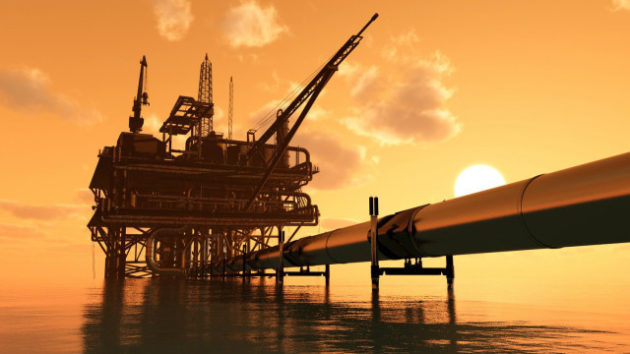What Trump and Sanders Said about Oil Prices 4 Years Ago by Daniel Bier
Remember when complaining about the price of gas was all the rage? The public discourse was awash in pseudo-psychology, hand-wringing about “peak oil,” and an array of conspiracy theories to explain why oil cost so much.
There was much ado about corporate “greed” (the cause of all life’s problems), hissing about “speculators,” nationalist chest-thumping about OPEC, self-proclaimed experts warning that Earth was out of oil, and many inarticulate suspicions about George Bush and Barack Obama.
Economists were pretty sure that the price of oil was related to supply and demand, but what did they know? One cantankerous socialist knew the truth:
Pump prices spiked 5% in the past month… Crude oil prices stood at $108 on Friday, up from only double digits at the beginning of the month. …
What’s the cause? Forget what you may have read about the laws of supply and demand. Oil and gas prices have almost nothing to do with economic fundamentals.
Fortunately, when he wrote that in 2012, Sen. Bernie Sanders was ahead of the game, having never read anything about supply and demand at all. Unencumbered by basic economics, he was able to see that Big Oil “gouging” and Wall Street “speculators” were to blame.
Remarkably, right around the time of the fracking revolution, the price of oil and gas started tumbling. I guess Wall Street’s heart grew three sizes that day.
But Sanders didn’t have the only theory. One super smart billionaire figured out that Saudi Arabia was the real problem:
Look at what’s going on with your gasoline prices. They’re going to go to $5, $6, $7 and we don’t have anybody in Washington that calls OPEC and says, “Fellas, it’s time. It’s over. You’re not going to do it anymore.”
When Donald Trump diagnosed this problem in 2011, his solution wasn’t just to “call Saudi Arabia” and tell them “you’re not going to raise that f***ing price!” No, he had a practical measure: seize Iraq’s oil fields. “To the victor belong the spoils. You go in. You win the war and you take it.”
It’s worth remembering this mass hysteria, although the situation today is somewhat different. The price of oil is below $30 a barrel. The International Energy Agency has warned that the world is now “drowning” in oil.
This week, the price for a particularly low-quality type of oil briefly dipped to negative fifty cents a barrel. That is, producers actually had to pay the refinery to take their oil. Has greed been abolished from the land? Maybe. But there’s also a sensible explanation: the high-sulfur oil is expensive to transport and refine, but the producers still had to get rid of it somehow.
But just a few years ago, it would have been almost unthinkable for refineries to actively discourage oil production. At $140 a barrel, almost any kind of oil is worth refining. And here’s the upshot: it was precisely those high prices that prompted the massive investment in production, exploration, and innovation that led to fracking, the shale revolution, and today’s tumbling prices. It was greedy, profit-seeking oil companies who drove the price of oil down over 80% from its peak in 2008.
It’s important to grasp these lessons now, because at some point, the price of oil — or some other commodity — will rise again, and we will be greeted by the same parade of doomsayers, conspiracy theorists, and would-be regulators that we endured for the last decade.
They’re not gone, they’re not even hiding — they’re leading the race for president.
Bonus economics of gas story: On Monday, local news in Michigan reported that a bidding war between a couple of gas stations briefly resulted in prices below 50 cents a gallon. To understand just how weird this is, the wholesale price of gasoline is about $1.
Is this another sign of irrational generosity sweeping the petroleum industry? No. Gasoline is retailed at razor thin margins; gas is typically about 70% of a station’s revenue, but only 30% of its profit. Gas stations actually make most of their money selling food, cigarettes, and bottled water inside.
Occasionally, gasoline is used as a loss leader: stations will sell gas for cheap (even at a loss) to bring people to the pump, where they can then make more money selling high-margin items like bottled drinks and tobacco.
Daniel Bier is the editor of Anything Peaceful. He writes on issues relating to science, civil liberties, and economic freedom.




Leave a Reply
Want to join the discussion?Feel free to contribute!